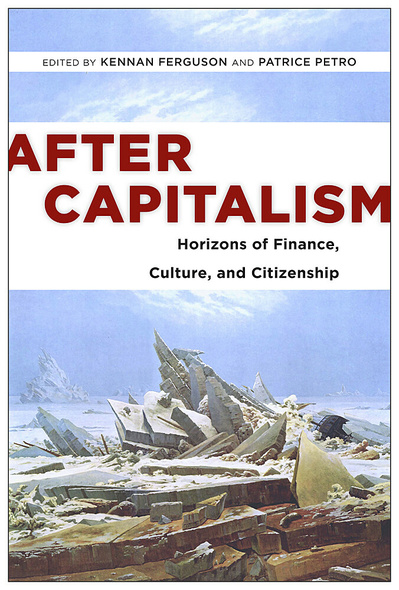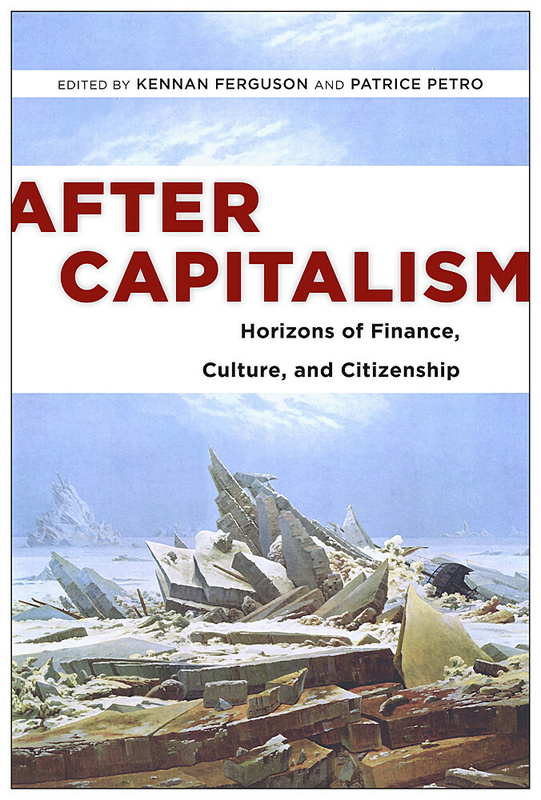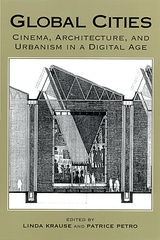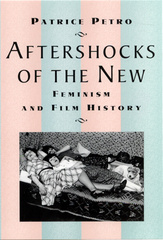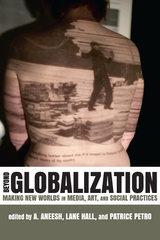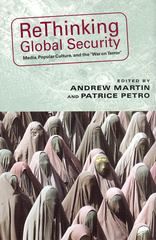After Capitalism
Horizons of Finance, Culture, and Citizenship
Edited by Kennan Ferguson and Patrice Petro
Rutgers University Press
From Thomas Piketty to David Harvey, scholars are increasingly questioning whether we are entering into a post-capitalist era. If so, does this new epoch signal the failure of capitalism and emergence of alternative systems? Or does it mark the ultimate triumph of capitalism as it evolves into an unstoppable entity that takes new forms as it engulfs its opposition?
After Capitalism brings together leading scholars from across the academy to offer competing perspectives on capitalism’s past incarnations, present conditions, and possible futures. Some contributors reassess classic theorizations of capitalism in light of recent trends, including real estate bubbles, debt relief protests, and the rise of a global creditocracy. Others examine Marx’s writings, unemployment, hoarding, “capitalist realism,” and coyote (trickster) capitalism, among many other topics. Media and design trends locate the key ideologies of the current economic moment, with authors considering everything from the austerity aesthetics of reality TV to the seductive smoothness of liquid crystal.
Even as it draws momentous conclusions about global economic phenomena, After Capitalism also pays close attention to locales as varied as Cuba, India, and Latvia, examining the very different ways that economic conditions have affected the relationship between the state and its citizens. Collectively, these essays raise provocative questions about how we should imagine capitalism in the twenty-first century. Will capitalism, like all economic systems, come to an end, or does there exist in history or elsewhere a hidden world that is already post-capitalist, offering alternative possibilities for thought and action?
Imagination and passion fuel these essays, which confront the worst of capitalism’s violence and the terrors of capitalism’s aftermath. A timely and well-edited collection, After Capitalism begins a crucial conversation among political economics, representation and imaging, and geopolitical mapping.
After Capitalism powerfully extends the horizon of capitalism's conceptualization, and is essential reading for anyone interested in critiques of globalization, culture and economics or the cultural politics of recession.
KENNAN FERGUSON is an associate professor of political theory at the University of Wisconsin-Milwaukee, where he also directs the Center for 21st Century Studies. He is the author or coeditor of several books including All in the Family: On Community and Incommensurability.
PATRICE PETRO is a professor of English and film studies at the University of Wisconsin-Milwaukee, where she also serves as Vice Provost and Director of the Center for International Education. She is the author, editor, or coeditor of eleven books, including Idols of Modernity: Movie Stars of the 1920s and Rethinking Global Security: Media, Popular Culture, and the ‘War on Terror’ (both by Rutgers University Press).
Acknowledgments
Introduction
Patrice Petro and Kennan Ferguson
Part IFinancialization, Creditocracy, Austerity
Chapter 1 Capital, after Capitalism
Geoff Mann
Chapter 2 Restoration of the Rentier and the Turn to Lifelong Extraction
Andrew Ross
Chapter 3 The Subprime Subject of Ideology
Ivan Ascher
Chapter 4 Social Democracy and its Discontents: The Rise of Austerity
Jeffrey Sommers
Part IIMedia/Art
Chapter 5 Austerity Media
Patrice Petro
Chapter 6 Imagining Beyond Capital: Representation and Reality in Science Fiction Film
Sherryl Vint
Chapter 7 Mistaken Places: Unemployment, Avant Gardism, and the Auto da Fé
Marcus Bullock
Chapter 8 Liquid, Crystal, Vaporous: The Natural States of Capitalism
Esther Leslie
Part III Belonging
Chapter 9 Cuban Filmmaking and the Post-Capitalist Transition
Cristina Venegas
Chapter 10 “Neither Eastern nor Western”: Economic and Cultural Policies in Post-Revolutionary Iran
Niki Akhavan
Chapter 11 Differentiating Citizenship
A. Aneesh
Chapter 12 Gaming the System: Imperial Discomfort and the Emergence of Coyote Capitalism
Bernard C. Perley
Notes on Contributors
Index

